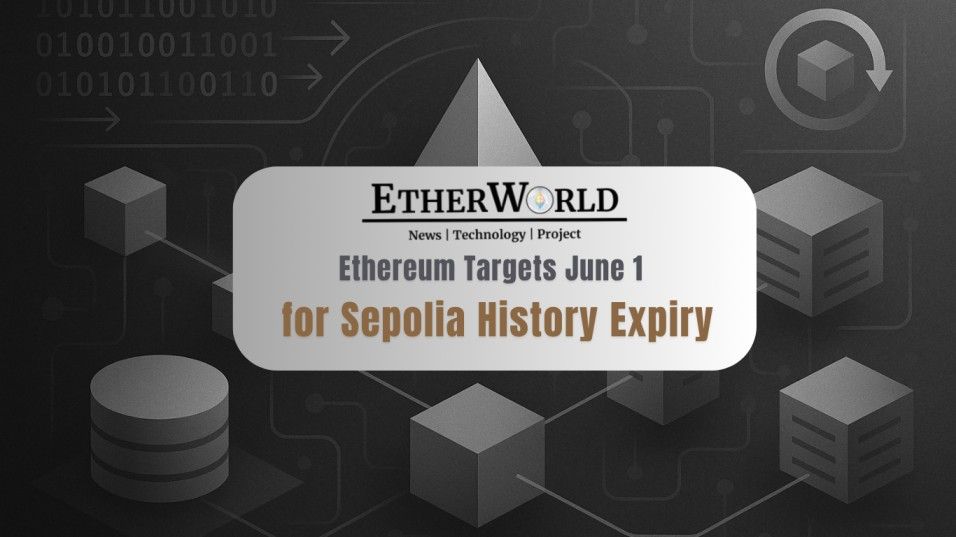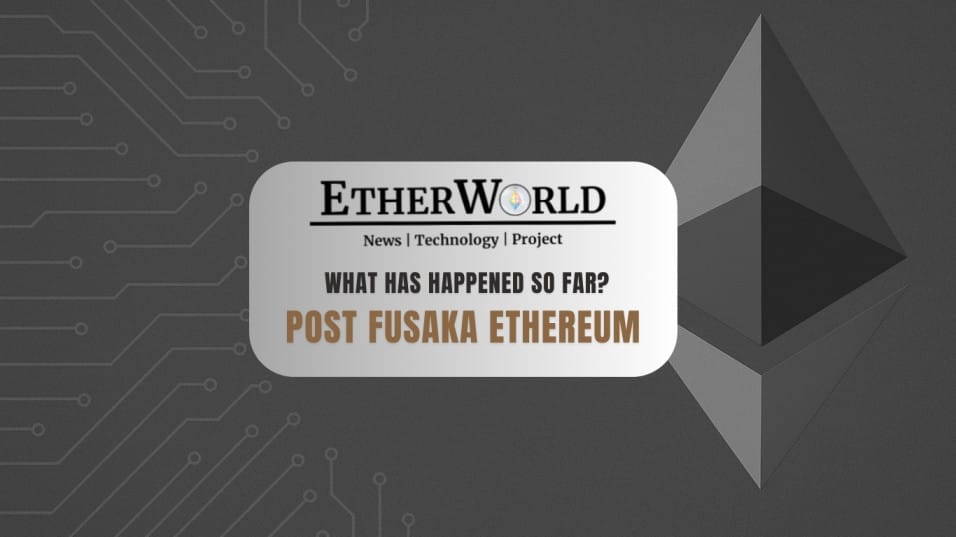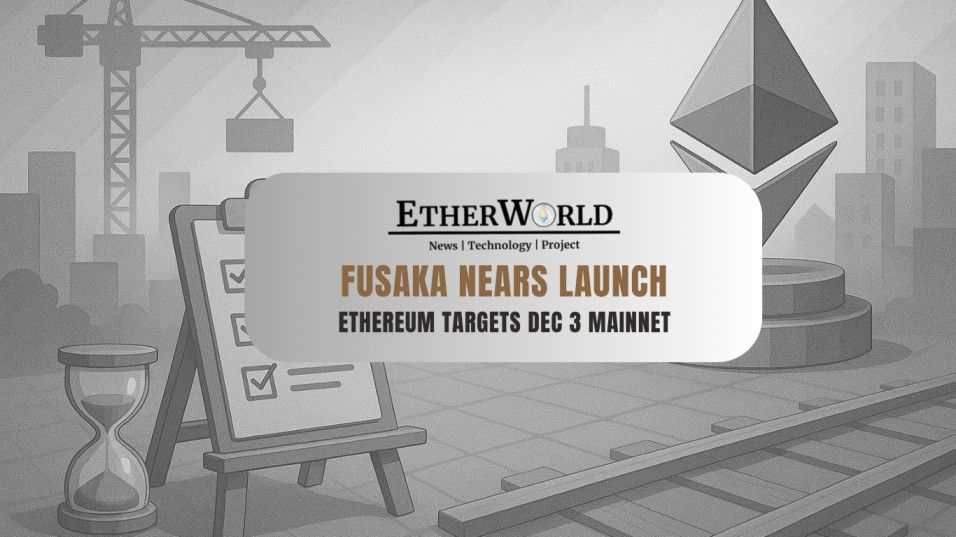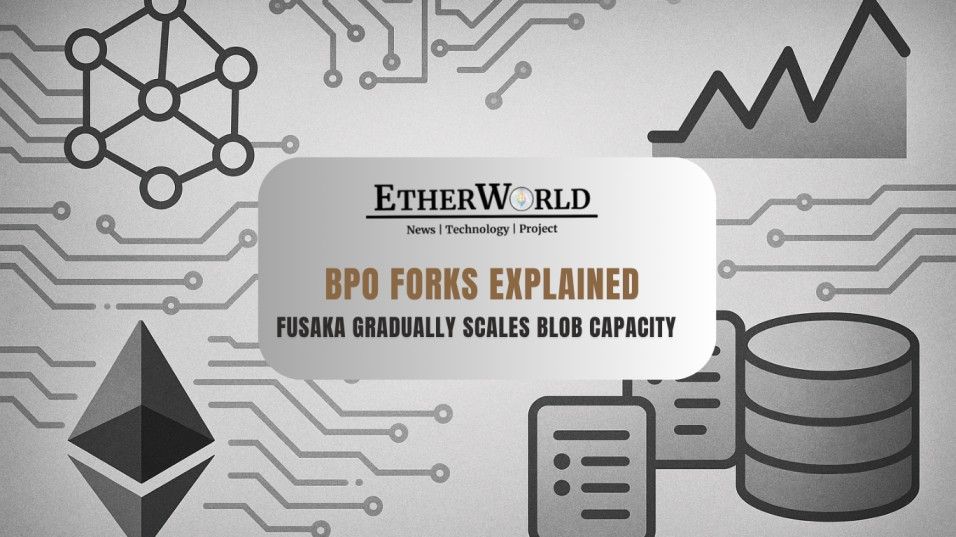Ethereum Targets June 1 for Sepolia History Expiry
Ethereum plans to begin public testing of history expiry on Sepolia by June 1.

Ethereum developers have tentatively scheduled June 1, 2025, as the date to begin public testing of history expiry on the Sepolia testnet, marking a pivotal step toward the network’s long-term goal of statelessness. This decision was confirmed during the All Core Devs Testing (ACDT) call on May 12, 2025, following months of internal discussions, partial client implementations, and tooling experimentation.
History expiry refers to the pruning of older blockchain state data—such as historical account balances, receipts, and storage—beyond a certain block depth. By discarding obsolete data from full nodes, Ethereum aims to reduce long-term storage burdens and enable lightweight clients to participate in the network without downloading the entire chain.
This shift is essential for improving scalability, decentralization, and the viability of long-term protocol upgrades. During the call, developers emphasized that the June 1 date is not a hard deadline but a coordination signal to encourage client teams to complete implementation, documentation, and test readiness.
While some clients, such as Geth, have already integrated the feature, others like Erigon and Nethermind are still reviewing or finalizing pull requests. Despite this variation, the overall sentiment was that the rollout could proceed in a staggered fashion, with different clients enabling expiry at their own pace—as long as full readiness is achieved before the Fusaka upgrade.
The initial rollout will take place on Sepolia, Ethereum’s stable testnet, allowing developers, infrastructure providers, and tooling teams to evaluate how history expiry affects node performance and synchronization. Special emphasis will be placed on user documentation and client guides, which are expected to be published in parallel with the testnet changes.
While some developers advocated for synchronized activation across clients, the prevailing view was that each client could enable history expiry when ready, provided they agree not to activate it on Sepolia before a shared date—tentatively June 1. This decentralized approach balances coordination with flexibility, reducing bottlenecks while still preserving testnet stability.
The broader vision behind history expiry is Ethereum’s transition toward a stateless architecture, where nodes validate blocks based on proofs rather than maintaining full state. This transformation would enable faster onboarding for new validators, more efficient light clients, and improved support for rollup-centric scaling.
The Sepolia expiry test represents the first practical step toward realizing this vision in a production-grade environment. If successful, the results of this rollout could shape the design and scope of future upgrades, such as those included in the Fusaka and beyond.
While history expiry is still in its early stages, the upcoming Sepolia test marks a clear signal that Ethereum’s stateless future is no longer theoretical—it’s being actively built and tested.
References
Related Articles
- Ethereum’s Institutional & Government Adoption
- Solving the Puzzle of Duplicate Blocks in Ethereum
- Ethereum Developers are Rethinking Transaction Signatures & Authority
- The Debate Over Freezing Ethereum's Core for Good
- Fixing Ethereum’s Message Signing Chaos
If you find any issues in this blog or notice any missing information, please feel free to reach out at yash@etherworld.co for clarifications or updates.
_____________________________________________________________________Disclaimer: The information contained in this website is for general informational purposes only. The content provided on this website, including articles, blog posts, opinions, and analysis related to blockchain technology and cryptocurrencies, is not intended as financial or investment advice. The website and its content should not be relied upon for making financial decisions. Read full disclaimer and privacy Policy.
For Press Releases, project updates and guest posts publishing with us, email to contact@etherworld.co.
Subscribe to EtherWorld YouTube channel for ELI5 content.
Share if you like the content. Donate at avarch.eth or Gitcoin
You've something to share with the blockchain community, join us on Discord!




